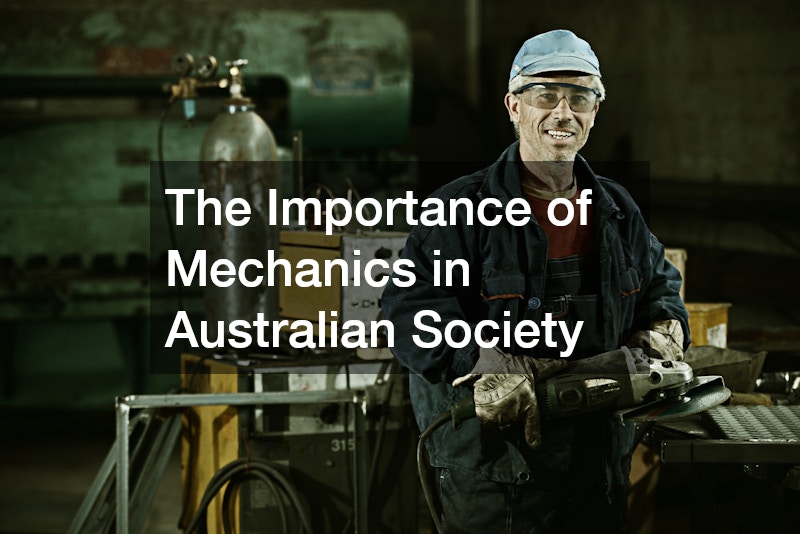Understanding the Role of a Mechanic
In Australia, mechanics play a crucial role in maintaining the safety and efficiency of vehicles. They are skilled tradespeople who specialise in the diagnosis, repair and maintenance of both private and commercial vehicles.
Drivers rely on their expertise to ensure that their cars are running smoothly and safely. A typical day for a mechanic may involve routine maintenance tasks like oil changes, as well as more complex jobs such as engine repairs. Understanding the diversity of their role helps in appreciating the significance of their work to the community.
Mechanics must possess a wealth of technical knowledge to effectively diagnose and resolve issues. This requires them to stay updated on the latest automotive technologies and repair techniques. In Australia, many mechanics choose to specialise in specific areas, such as transmissions or electrical systems, to enhance their expertise. This specialisation enables them to provide comprehensive services to their clients, ensuring that all vehicle components are well-taken care of. Additionally, mechanics require strong problem-solving skills to tackle the various challenges they encounter in their daily tasks.
One key aspect of a mechanic’s job is their ability to communicate effectively with clients. It’s important for mechanics to explain technical issues in a way that vehicle owners can understand. In Australia, mechanics often foster strong relationships with their clients, which is built on trust and transparency. This ensures customer satisfaction and encourages repeat business. Establishing rapport with clients is as crucial as the technical skills required in the trade.
The Path to Becoming a Mechanic
Becoming a mechanic in Australia typically starts with completing a Certificate III in Light Vehicle Mechanical Technology. This qualification is often pursued as part of an apprenticeship, which provides real-world experience alongside formal education. Apprenticeships are integral to developing the practical skills needed in the industry. They offer hands-on experience where aspiring mechanics work under the guidance of experienced professionals. This combination of classroom learning and on-the-job training is essential for building a successful career in mechanics.
Throughout their apprenticeships, aspiring mechanics are exposed to a variety of vehicles and mechanical systems. This broad exposure helps them develop a versatile skill set that is highly valued in the industry. Additionally, mechanics may choose to pursue further specialisation through additional certifications. These qualifications allow them to acquire deeper knowledge in specific areas such as automotive electrical technology or heavy vehicle mechanics. Specialisation not only enhances a mechanic’s skill set but also their employability in a competitive job market.
Once initial training is completed, mechanics in Australia must keep up with continuous professional development. The automotive industry is constantly evolving with new technologies and regulations. Mechanics must adapt to these changes to provide the best service to their customers. Professional development courses and workshops are essential for keeping skills and knowledge current. Embracing lifelong learning ensures that mechanics remain effective and competitive throughout their careers.
The Importance of Mechanics in Australian Society

Mechanics hold a vital position in Australian society by ensuring the safety and reliability of vehicles on the road. A well-maintained vehicle is crucial not only for the individual owner but also for public safety. Mechanics are responsible for performing preventive maintenance that can prevent accidents and costly breakdowns. Their expertise helps in identifying potential issues before they become severe problems. This proactive approach contributes to the reduction of road incidents and enhances overall traffic safety.
Furthermore, the economic impact of mechanics in Australia cannot be overlooked. They provide essential services that contribute to the mobility of individuals and the efficiency of businesses. Reliable transportation is a cornerstone of the Australian economy, facilitating trade, commuting and tourism. Mechanics support this infrastructure by ensuring vehicles are in top condition, allowing for uninterrupted travel and commerce. Their work directly impacts productivity, making them a critical component of the economic fabric.
Mechanics also play a role in environmental sustainability by maintaining vehicles for optimal fuel efficiency. With Australia facing environmental challenges, reducing vehicle emissions is crucial. Mechanics assist by performing tune-ups and repairs that ensure engines run efficiently, minimising pollution. Their expertise is instrumental in supporting national and local environmental goals. As the automotive industry shifts towards greener technologies, mechanics continue to adapt, becoming key players in the drive towards a sustainable future.
